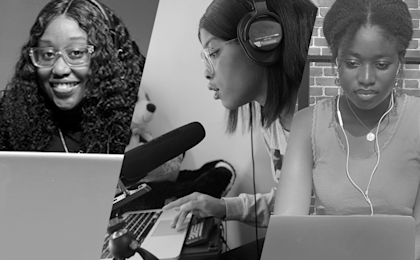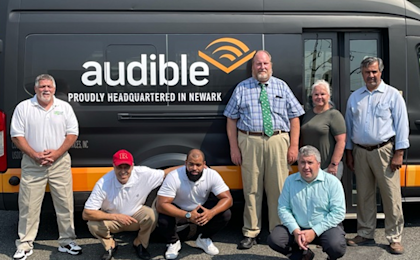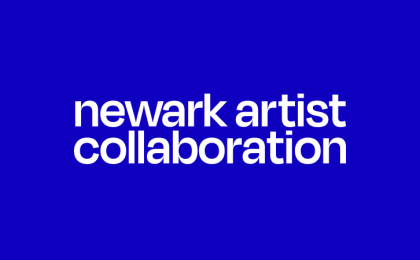For These Indigenous Writers, a Journey of Voice, Culture, and Storytelling
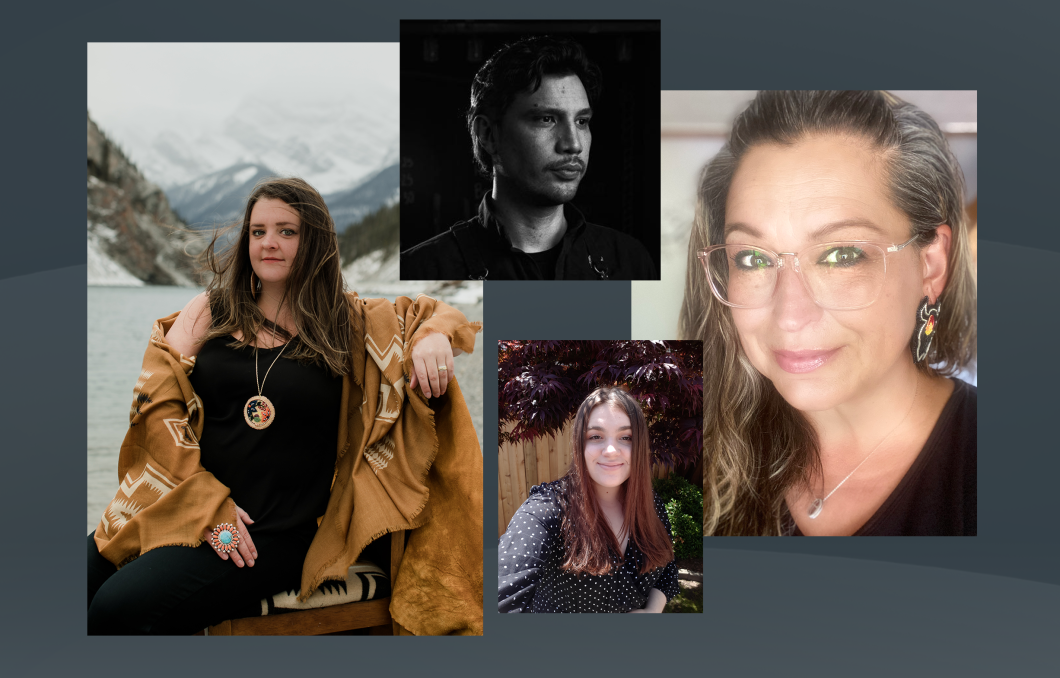
Samantha Krilow was nervous, staying up late at night trying to finish a piece of writing when her mentor sent some reassuring words: “You have time. You have a long journey of writing ahead of you.” Krilow says it made her feel really good to know she wasn’t alone, that she could practice her craft with this kind of support. This is one of the biggest benefits of Audible’s inaugural Indigenous Writers’ Circle (IWC) program in Canada, which pairs emerging First Nations, Inuit, and Métis writers with Indigenous mentors in order to help clear a path to success.
Krilow, who is Métis, was one of 15 writers accepted to the program and then paired with a mentor who could offer advice on everything from craft to publishing, all from an Indigenous perspective. Krilow’s mentor is Tanya Talaga, who is Ojibwe with roots in Fort William First Nation, and who wrote the bestseller Seven Fallen Feathers and the Audible Original podcast Seven Truths. “It’s important that we offer a hand to other First Nations, Métis, and Inuit writers who want to tell their stories and give them a chance to do so,” says Talaga. “When we were younger, we didn’t have mentors like this; I don’t remember a program like this.”
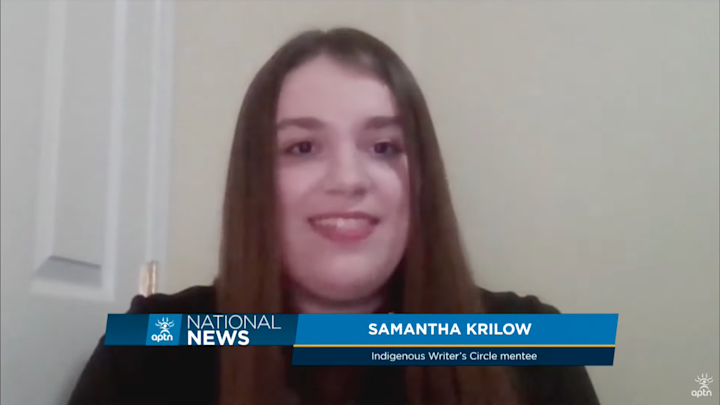
The program was conceived in collaboration with Yulu PR, a Vancouver-based social impact agency, says Raquel DiPerna, who heads up the IWC for Canada, “to help us leverage Audible’s service, brand power, and resources to provide equitable access and opportunities to under-represented groups.” If publishing feels prohibitive for emerging writers, it can feel more so for Indigenous writers, who face unfair systemic barriers and may not have access to Indigenous titles in classrooms and bookstores. In addition to giving writers feedback on drafts, IWC mentors advise on submitting work to literary journals, agents, and publishers, and connect writers with their networks.
That’s what happened for Martin John, a Dalkelh writer from the Tl'azt'en Nation. His mentor, Richard Van Camp (who is a Tłı̨chǫ writer of the Dene nation), not only encouraged John to finish a novel and a screenplay, but set him up with an agent. Now he has a publishing deal. “I feel as a mid-career author, it's really my time to give back,” says Van Camp, who has authored 26 books in just about every genre, including The Lesser Blessed produced by Audible, and has had several of his works adapted for film.
The value of working with IWC mentors goes even further. When she applied, one of Krilow’s goals was to learn how to incorporate her identity into her writing. Working with Talaga, she says, “helped me get in touch with Métis oral traditions and weave them into my storytelling.” As she delved into those stories, Krilow discovered something transformative. “Many of them are my ancestors! I feel like I'm part of something larger than myself when I engage with Métis traditions.”
This intersection between craft and culture is also what Jaymie Campbell was looking for when she applied to the IWC. Campbell is Anishinaabe from Curve Lake First Nation in Ontario. She says her mentor “encouraged me to be brave and step outside my comfort zone,” and to use her authentic voice, “to write as an Indigenous writer and not try to change it.” For example, Campbell was taught that historically in her language there was no distinction between "animate" or "inanimate" when referring to the land, and exploring this lack of distinction in our relationship to the land influences her stories.
For some, the IWC has been a way back to a heritage they were denied altogether. Corri Daniels is Plains Cree from George Gordon First Nation in Treaty 4 territory north of Regina, Saskatchewan, but she was raised by non-Indigenous parents in Calgary, Alberta. Daniels is a survivor of the Sixties Scoop, a decades-long oppressive program that removed Indigenous children from their homes, often without the consent of their families, and placed them with mostly Euro-Canadian families. Many times, children were raised not knowing their true identities until later. Says Daniels, “I didn't grow up with oral storytelling because I didn't grow up in my culture. I didn't grow up hearing stories from my grandmothers or grandfathers.” As she works with her IWC mentor, Daniels is finding her voice as an Indigenous storyteller. “It's our responsibility to learn the stories and pass them on,” she says. “For so long, we were silenced, so to be able to do this is a gift. And it's our right.”
“It’s vital that the world hears from more Indigenous storytellers,” says Georgia Knox, the country manager for Audible’s service for Canada. “We are honored and excited to continue to grow the Indigenous Writers' Circle, as well as support its incredibly talented alumni into the future.” Applications are currently open through May 31, 2022, for the next cohort of writers.
That this is only the beginning is something Van Camp wants the writers to know, as well. “I believe I'm speaking for all the mentors and everybody at Audible,” he says, “that our genuine wish for the writers who have entrusted us with their time and their dreams is that they feel welcomed into this huge, beautiful Indigenous community of writers and storytellers, and that they know they have us for life.”
